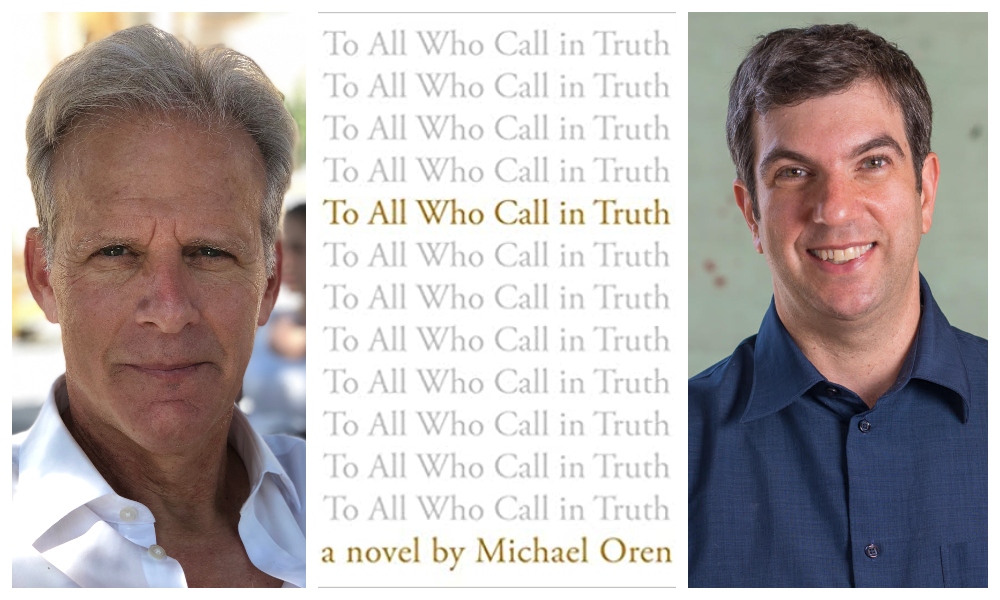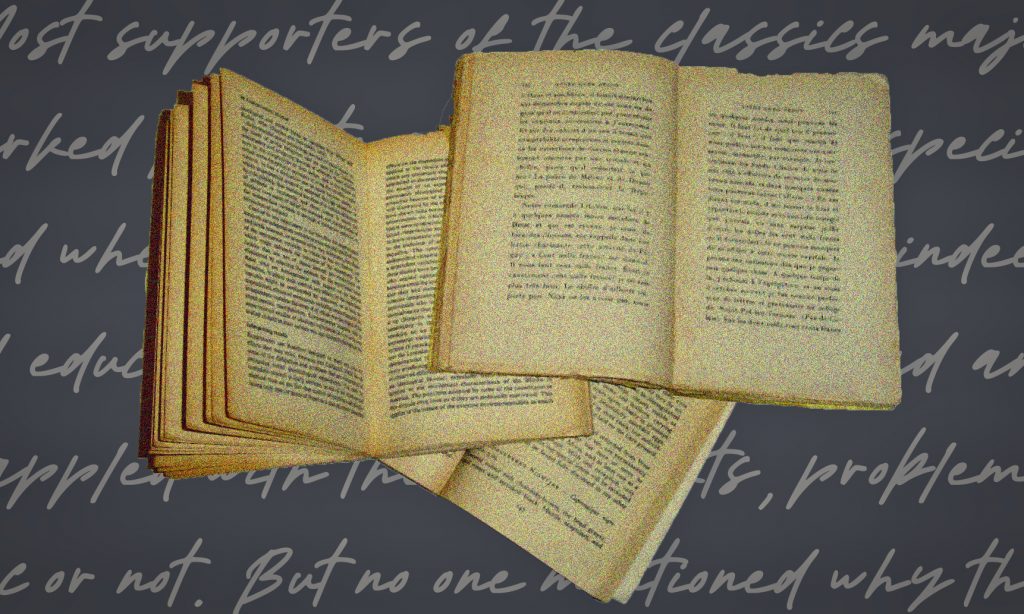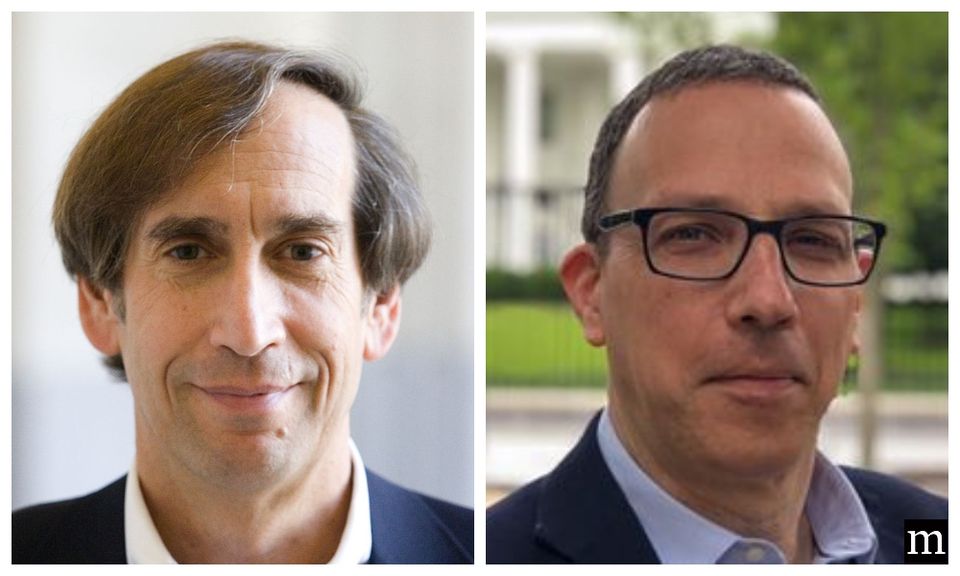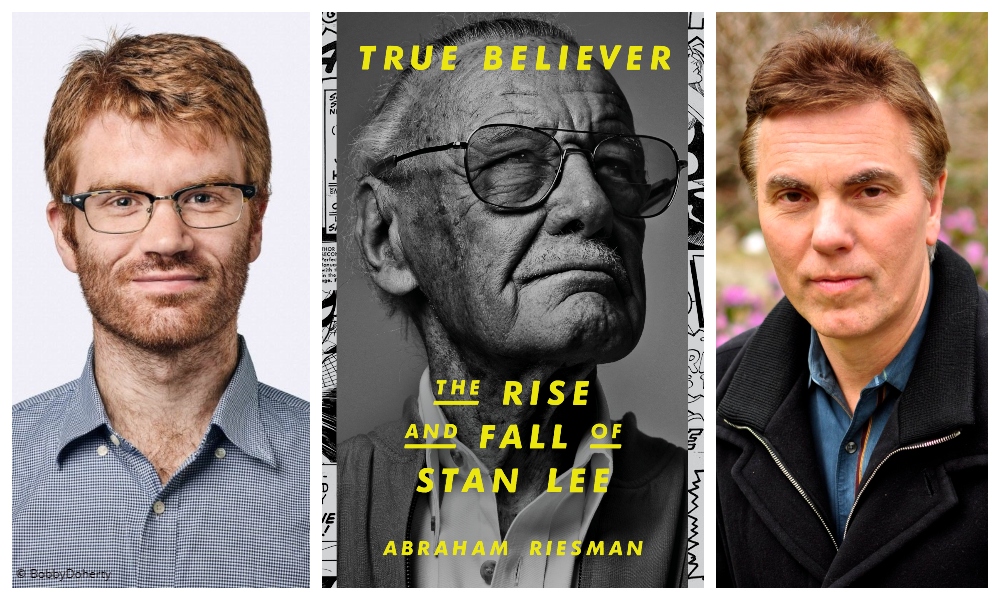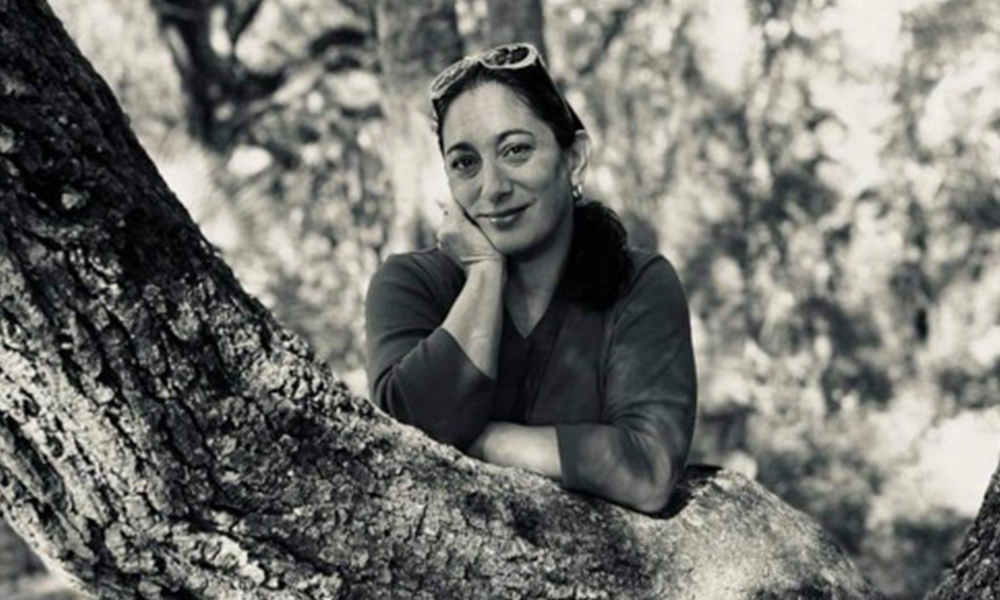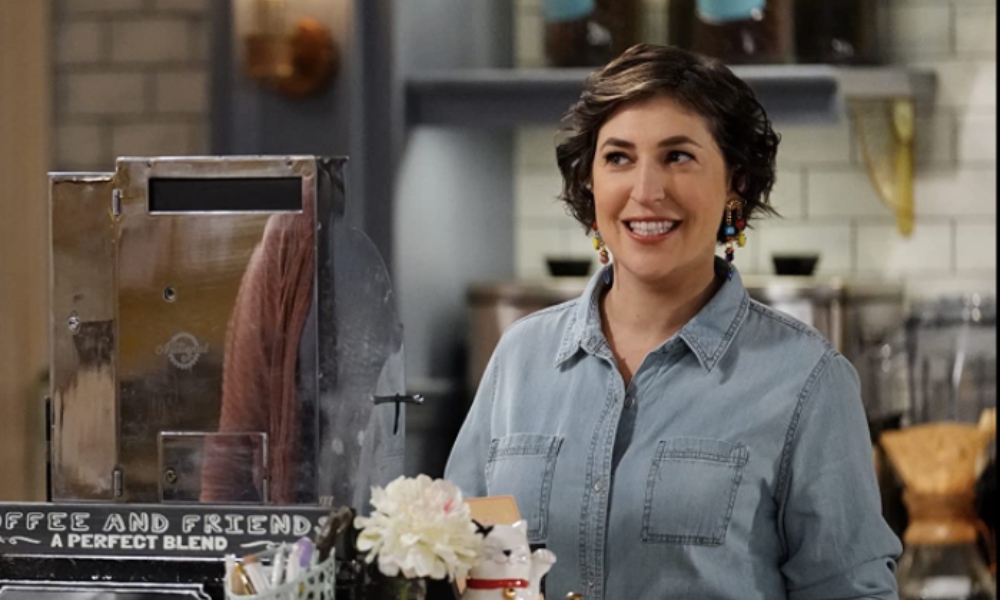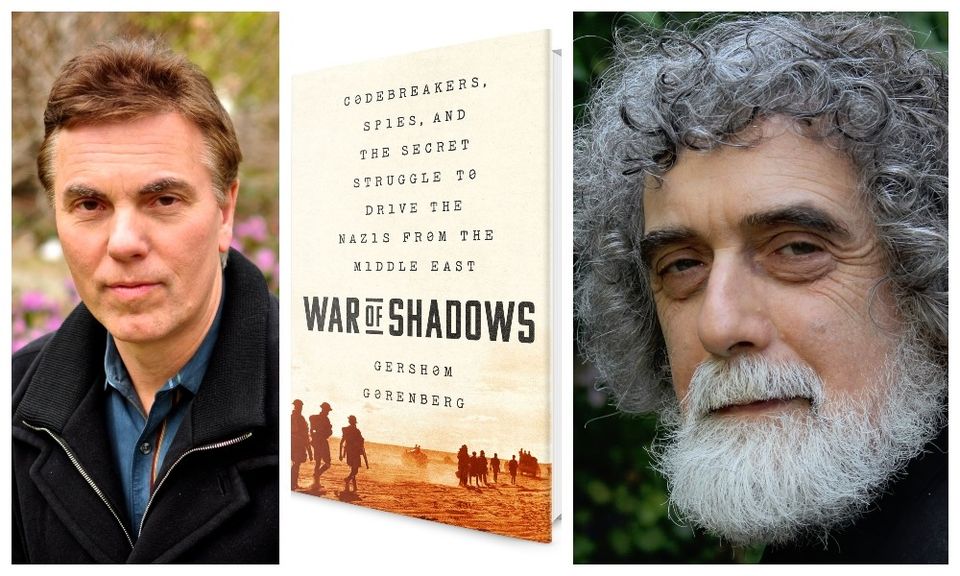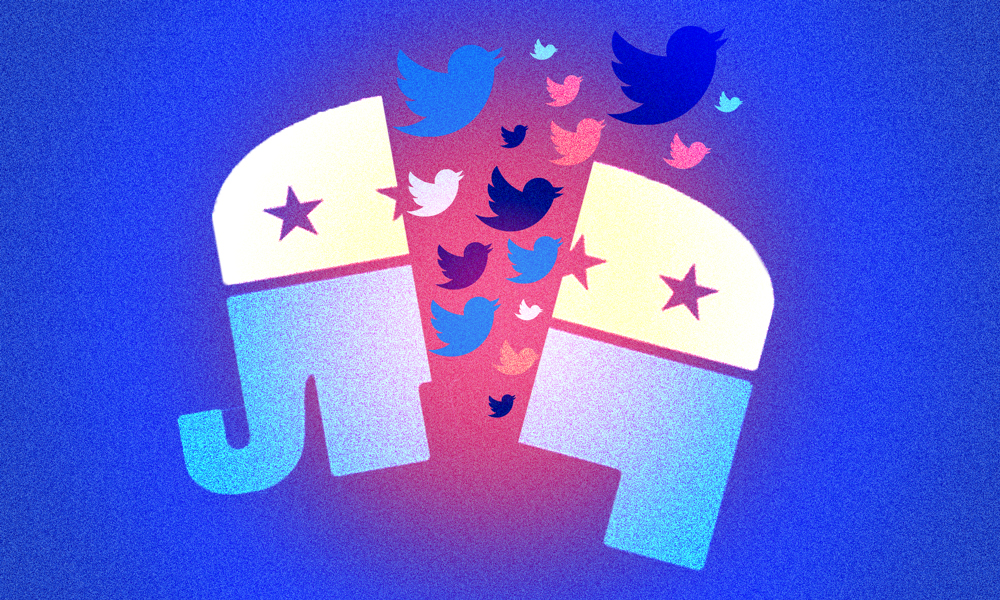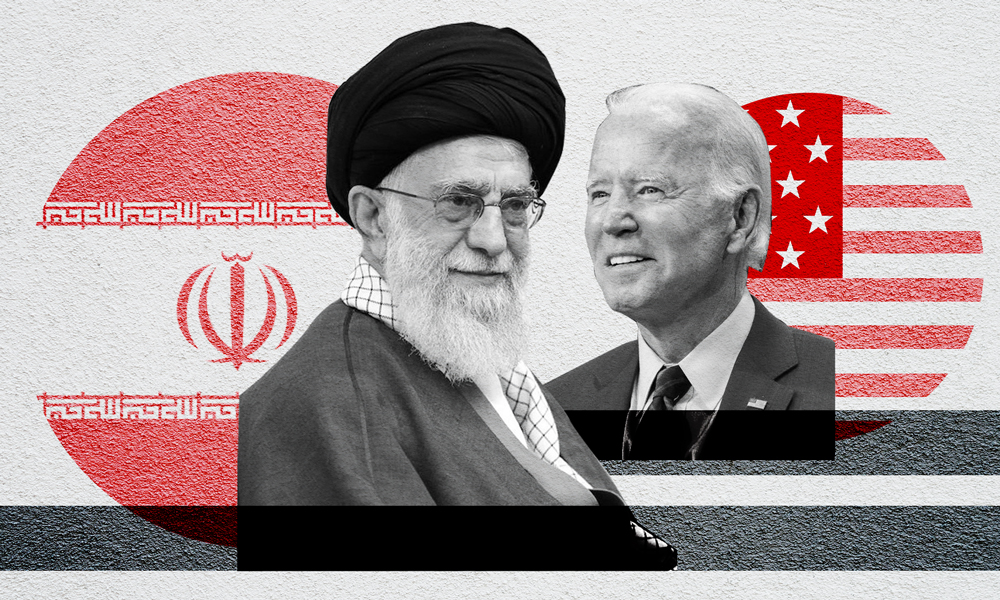Israeli novelist Dorit Rabinyan was enjoying a peaceful afternoon at home on December 30, 2015, when a phone call from an old friend, Haaretz journalist Or Kashti, changed her life. “I have something to tell you,” he said. “It may be the biggest story I will ever break.” “Good for you!” replied Rabinyan. “No,” said Kashti quietly, “it is very good for you.”
The “good news” was that the Israeli Ministry of Education was pulling Rabinyan’s novel All the Rivers from the national high school curriculum, claiming that the novel, which depicts a romance between a Palestinian man and an Israeli woman, encouraged intermarriage between Jews and non-Jews. In a statement about the decision to the popular Israeli news site Ynet, Dalia Fenig, an Education Ministry official, said, “Intimate relations, and certainly the available option of institutionalizing them by marriage and starting a family—even if that does not happen in the story—between Jews and non-Jews are seen by large portions of society as a threat on the separate identities.”
The dramatic backlash to the banning began almost immediately, and it was as good for Rabinyan as Kashti had promised. Literary icons Amos Oz, David Grossman, A.B. Yehoshua and Meir Shalev, among others, rushed to Rabinyan’s defense. The novel became the focal point of a fierce debate about freedom of speech in Israel and the persistent fear of Jews marrying Arabs. Sales of the book, already a best-seller, soared and eventually doubled. In the face of intense criticism from around the globe, the Israeli government later partially reversed its decision and allowed some instructors to teach the novel.
Rabinyan was already a well-known novelist when All the Rivers was published in Israel in 2014 under the title Gader Haya (Borderlife). Her first novel, Persian Brides, won the Wingate Prize in 1998, and her second novel, Strand of a Thousand Pearls, was published to critical acclaim in 1999. Even though some reviewers expressed disappointment that her third novel was not more radical—Yitzhak Laor wrote in Haaretz, “In short, we can say that the author’s decisions are not daring enough to produce a taboo-shattering love story”—Gader Haya was well received and won the prestigious Bernstein Prize. The ban brought the novel to the attention of readers and critics around the world, making it to the front page of The New York Times arts section and even eliciting a statement of support from German Chancellor Angela Merkel. Translated into 17 languages and now taught in high schools and universities throughout Europe, the Middle East and the United States, it remains an international best-seller.
Rabinyan’s novel has its origins in the most private parts of her own life. In November 2002, Rabinyan met Palestinian artist Hassan Hourani in New York through mutual friends, and the two quickly began a romance. During the next year they were constant companions, exploring the city’s many restaurants and museums, sharing stories of their respective childhoods in Tel Aviv and Hebron, discussing their work and arguing fiercely about the situation in the Middle East. Their political identities collided, and despite the pair’s great love for one another, they parted ways, and eventually returned separately to the Middle East. Not long after, in 2003, Hourani drowned while swimming in the Port of Jaffa. Shattered by his death, Rabinyan abandoned the novel she had long been struggling to complete and instead spent the next six years writing All the Rivers, a fictionalized account of her relationship with Hourani.
The controversy transformed Rabinyan into an unofficial ambassador for Israeli literature, touring the world to discuss her novel and the experiences of other writers and artists in Israel. During her recent trip to the United States, Moment culture editor Marilyn Cooper met with Rabinyan to discuss her memories of Hourani, her reactions to Israeli Minister of Education Naftali Bennett and her passionate conviction about the need for dialogue between Israelis and Palestinians.
What was your first reaction to the news that All the Rivers was being pulled from Israeli public schools?
My initial response was to laugh. The idea that a novel could be politically threatening in this way was like something from Kafka, not 21st-century Israel.
What happened next?
The minister of education, Naftali Bennett, on the Channel 2 evening news, called me an enemy of the nation. My ideas were compared to those of Hamas, and I was falsely accused of describing Israeli soldiers as war criminals and sadists. Within 24 hours of Or Kashti’s phone call, I was at the center of a very public storm. I received both acclaim and threats. I felt bewildered that my private and personal novel had suddenly become a symbol of freedom of speech and expression under fire in Israel. If I had imagined any of this, particularly my feelings of fear and alienation, I would never have written my novel—I would have been much too scared.
What kind of threats did you receive?
I received death threats via Facebook, Twitter and email. Right-wing activists distributed my personal telephone number. People called in the middle of the night, screaming, cursing and threatening to rape and kill me. Members of Lehava [acronym for LeMeniat Hitbolelut B’eretz HaKodesh, “Prevention of Assimilation in the Holy Land”] marched in front of my building.
“If I had imagined any of this, particularly my feelings of fear and alienation, I would never have written my novel—I would have been much too scared. ”
Tell me more about Lehava and your interactions with them.
Lehava is a radical right-wing group; they violently oppose personal relationships between Jews and non-Jews, especially Arabs. They literally wander around the streets of Jerusalem and other cities and try to place themselves between interreligious and interracial couples, physically hitting and attacking people. Their victims have been hospitalized. They circled my building for weeks, waiting for me to leave my home. One woman from Lehava spit on me and shouted that I was less than the dirt on the bottom of her shoe.
Why did your novel provoke such a strong reaction?
All the Rivers touched a raw nerve in Israel. My book attempts to address the core Israeli fear of losing our Jewish identity in the Middle East. Yet it is that very fear that condemned it to official rejection. I hope people will read it for its own sake, not just because of the scandal. It should be viewed as a story of two individuals, an Israeli woman, Liat, and a Palestianian man, Hilmi. The demon that Liat and Hilmi are dealing with is generalization, a troubling nationalization of the private and the intimate.
You’ve said that it’s essentially a novel about identities. What do you mean by that?
Ironically, those who say that my book encourages assimilation have misunderstood one of its main themes: the fear of losing one’s identity. In the past, Jews were exiles; they had to carefully preserve their separate identities within the larger non-Jewish communities they lived in. To accomplish this, they created abstract boundaries, and the novel mirrors that historic concept of separation and isolation. My character, Liat, epitomizes this fear of being lost. Liat and Hilmi meet in New York, and the city becomes a cocoon for them, a safe place, where they can share experiences and get to know one another. Theirs is a complicated story. It reflects the Zionist teaching of separateness; it is not a love story but a tale of a drawn-out resistance to love. Liat has an idea of herself as an Israeli and Hilmi as a Palestinian. Throughout, she is terrified of having her identity swallowed up by him; she is scared that her Jewishness will dissolve into his Arab identity. Despite the wider implications, Hilmi is not the entire Palestinian people. He is one person. That is how Liat sees him.
“While I do not want my country to go on being an occupier, neither do I want it to become a minority. That is my interpretation of being a Zionist. Unlike some, I do not consider it bizarre for the Jewish people to want to control their own destiny.”
Before the ban, how did people react to the novel?
I published the book in June of 2014; that July, war broke out in Gaza. My novel was about dialogue and dual perspectives on reality. With missiles being fired from Gaza into Israel and people dying, my book felt irrelevant. But I began to hear from Israelis who were reading it in bomb shelters between sirens. They said the book was comforting and provided hope in an anxious time. There were Israeli soldiers in Gaza who posted pictures of themselves reading the book on Instagram; they posted messages that they were reading my book to help them remember that they were only fighting against Hamas, not all Palestinians in Gaza. Later the novel became part of the public school curriculum because the committee said that reading it would help young Israelis relate to and understand Palestinians. That made me happy.
How do you respond to your critics, in particular to Naftali Bennett’s comment that your book “depicts IDF soldiers as sadistic war criminals”?
That is an absolute lie, and that should be in bold letters. He exploited me as a way to further his monstrous political ambitions. He slandered my book and me. He distorted my words and writings until they were unrecognizable. Soon after this happened, we were at the same event, and I hid behind a curtain to avoid having to shake his hand.
Had he read the novel?
No. When the scandal about All the Rivers being banned from the public school erupted, Bennett faced a lot of criticism. To distract from that, he described me as an ultra-leftist and made the worst accusation you can make against an Israeli artist—that I attacked and slurred Israeli soldiers.
How do you feel about him banning your novel without having read it?
He’s one hell of a bastard. I will never forgive him for the month when I couldn’t sleep, for the month when I was terrified by the silhouettes of the bullies from Lehava lurking on the wall of my building and by my being chased on the streets. It was deliberate. He knew that by portraying me as the nation’s enemy, as not supporting Israel, he would be able to distract the public from other aspects of his agenda and the larger political situation.
For the record, do you support Israel’s existence as a Jewish state?
More than anything. I am a Zionist.
What does that mean to you?
I believe that this planet must contain a country that is universally viewed as Jewish and ruled by Jews, a place where Jews have authority over their own lives. I believe that the only place on earth for the Jewish state is the space between the 1967 line and the Mediterranean shore and that Israel must be equally Jewish and democratic. For this to happen, you must have a Jewish majority voting for the Parliament. While I do not want my country to go on being an occupier, neither do I want it to become a minority. That is my interpretation of being a Zionist. Unlike some, I do not consider it bizarre for the Jewish people to want to control their own destiny.
Do you support the formation of a Palestinian state?
Absolutely. I support this because I support the Israeli State being both Jewish and democratic. The Palestinian State should be in the West Bank and Gaza. That is their place. They should be able to live under their flag, their anthem and their patriotic nationhood. Israelis and Palestinians should live as good and peaceful neighbors with each other. I would be a hypocrite if I supported the Jewish dream of nationhood but rejected the Palestinian aspiration for a state.
Is that vision of the region expressed in your novel?
We need literature that reflects our complexities and our collective experiences and feelings. That includes fear. Liat carries her Israeli Jewishness with her when she travels to the U.S. and when she begins her relationship with Hilmi. She gains intimate knowledge of who she truly is by having herself mirrored in his identity. The relationship and her experiences threaten the mental landscapes that she has been indoctrinated to have, that essential Israeliness of isolation and separation and most especially of not mixing with the Arab neighbor. It’s a good guess that if Liat had fallen in love with an Italian man, the Ministry of Education would not have banned the book from the curriculum. Israel is an island within an Arab sea, fearful of losing its identity as a Jewish state. That’s equivalent to how Liat experiences the sphere of Hilmi’s love. In the end, she has to be her own separate and independent person.
Like Liat, you spent a number of years living in New York. What made you decide to return to Israel?
I yearned for my house, my people and my sun. Longing for home is very Israeli and perhaps essentially Jewish; it is our legacy to long for Zion. I craved the meaning that this place—this crazy, lost, but very dear country—gives to my life.
Can you talk more about your relationship with Hassan Hourani, the Palestinian writer on whom the character Hilmi is based?
Hassan was my muse and inspiration; I felt him by my side as I wrote. My relationship with Hassan Hourani in the last months of his life made me the closest witness to the man he was. As a storyteller, after his death, I felt obligated to carry on his memory, to write about the two of us together in the cold New York winter, each revealing ourselves to the other. As an Israeli and a Palestinian, we were able to overcome the political circumstances of our birth and the conflicting forces of governments and statecraft, hatred and terror and brainwashing from all sides. We were individuals who succeeded in drawing close, who knew each other, who learned about and saw one another, freely, with respect and love. It was a powerful and moving experience, a kind of victory over the forces of nature.
In your farewell essay to Hourani, published soon after his death in The Guardian, you wrote, “I had to sit with a Palestinian guy on the freezing steps of City Hall in Brooklyn in order to admit to myself how attached I am to Israel.” What did you mean by that?
To believe in peace and coexistence in Tel Aviv, where everyone you meet is an enlightened liberal Jew, is somewhat barren and artificial. In New York, I was part of a wider society of intellectuals with young Palestinian academics and artists who were articulate, polished and mainly secular. In the long conversations and bitter arguments I had with them in Brooklyn, my sense of being an Israeli gained renewed power and became genuine and much more meaningful.
Do Palestinians read the novel?
Yes, it’s ironic and a kind of revenge; there are so many people who would never have heard of or read my book without the ban. As Federico Fellini said, “Censorship is advertising paid by the government.” I’ve received letters about it from a Palestinian student in Birzeit, which is north of Ramallah, and from an Israeli settler living in Beit El. Both said that they found joy in reading this book because it described the landscape of their lives.
What do you want readers to take away from your novel?
There have been incessant efforts to caricature the Palestinian “other” as demonic and boorish. Naftali Bennett has likened the Palestinians to “shrapnel in the ass.” There is political deadlock, and Benjamin Netanyahu absolutely refuses to engage with the Palestinians. In one way, All the Rivers creates an opportunity for dialogue. It is a story about the responsibility to truly see the “other” and to recognize ourselves in them. Hilmi is depicted as approachable and lovable. Hilmi is humanized through Liat’s eyes, and Liat is also humanized through Hilmi’s eyes. In my novel resides the hope that sooner or later, even if it is with great reluctance, we will admit that we are all in this together. As French philosopher Emmanuel Levinas teaches, we can redeem our humanity not just by caring about our own perspective, but by seeing details of the other individual in the mass of humans.
What does your experience with the book say about Israeli society?
There has been a very efficient conspiracy to numb elements of Israelis’ minds so that they become unaware of how much they are being manipulated, and of how much they serve the motivations and ambitions of politicians who are empowered by ignorance. Perspectives like mine that allow knowing the “other” threaten those politicians. But if you only allow for one perspective, you narrow the world. In the end, I believe that the debate about my book, the scandal and its outcomes, actually shows how strong and stable Israeli democracy still is. In many ways, Israelis are so tired by this ongoing conflict and by living in a war zone that, as a way to cope with the pain, we’ve self-anesthetized and chosen to blind ourselves to much of what is happening. Yet when something like this occurs, many Israelis speak out and are outraged by ongoing government attempts at censorship. In Israel, authors like me are not sponsored by or controlled by the government. Ultimately, the government cannot limit the freedom of the written word.



